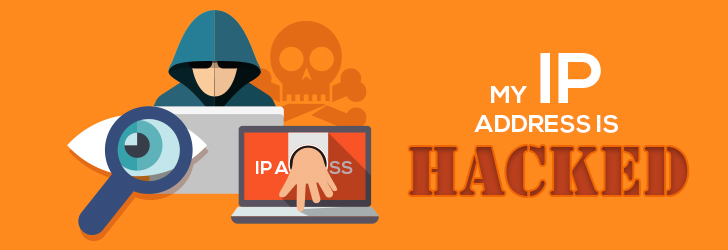
Many readers of our website are contacting us for help on *allegedly* hacked IP address, and remedies for getting it back. One of the user is telling us his IP address used to be 64.3.x.y in Dallas and now it's 67.72.x.y located in Utah (per ip lookup); and hence his IP address is stolen, and his computer is running very slow and acting abnormal.
For a non-computer person, this may sound like a user's IP address has been hacked but in reality your IP address cannot be hacked. Chances are that you're getting your IP address dynamically from your Service Provider whom may be servicing multiple areas. When you disconnect from your ISP and reconnect to the Internet, you're getting a new IP address from your Internet Service Provider and this IP address may or may not be the same as previously assigned. This does not mean you're sharing this IP address with someone else, as you've just assigned a new IP address and your old IP address may have been assigned to a new person in Utah. As ISPs servicing multiple cities, they may allocate their IP address how ever they desire, and this may cause location of IP address to be incorrectly shown. Getting an IP address that shows remote location (Utah) does not slow down your computer, or cause it to act abnormal.
If your computer is acting slow or behave abnormal, you may have spyware or virus on your computer. Slowness of your computer has nothing to do with your IP address. You may wish to scan your computer for virus, and remove them.
If someone knows my IP address, can they hack my computer?
Depending on how your computer is connected to the Internet and the type of security in place, your computer may vulnerable for hack. In reality, chances of your computer being hacked from your known IP address is very unlikely. The trouble of hacker trying to gain access to your computer doesn't justify hacking into your computer unless you have billions of dollars in your bank account accessible from your personal computer. The most easiest way for hackers to gain access to your computer is through virus, not by attacking an IP address.
I have a static IP address. Can my computer (or server) hacked?
Having a static IP address doesn't increase the chance of your server being hacked, but vulnerable software and configuration may allow hackers to randomly attack your computer. Hackers learn known vulnerability on certain types of software, and using known vulnerability hackers randomly attack machines. Servers directly connected to the Internet are more exposed than the personal computers sitting behind the router with firewall. Unless you're a network professional managing servers, chances of your personal computer hacked is very small. Again, the easiest way to hack into your computer is by through a rootkit or virus.
Share this post
Leave a comment
All comments are moderated. Spammy and bot submitted comments are deleted. Please submit the comments that are helpful to others, and we'll approve your comments. A comment that includes outbound link will only be approved if the content is relevant to the topic, and has some value to our readers.

Comments (1)
I would just like to add to the discussion that if you are the victim of a cyber-hijack, hackers take on all admin roles and make you a user. I know because I am and have been a “user” for over 2 months- on 4 computers, 2 phones and an iPad.
May 20, 2021 at 12:40 AMGetting to the point, the IP address you see belongs to my hacker and not me. My hacker is on Verizon, and I have internet and phone service through Comcast. Although I called Comcast and got an IP address and I was able to put it in, his is the only one who shows up. I’ve changed my phone number 4X, iPhone 2x, and thoroughly checked for spyware with Certo. I even called the state where he lives and talked to Verizon and begged to be taken off his IP. No one does anything. It has happened with 4 phone numbers in a month.
I don’t think your IP can be hacked, but I know it can be taken over and replaced with a hacker with self-assigned admin permissions.
I'm having the exact same problem, for 2 Years now, have you come up with a remedy to this problem yet?
Myself included.....for 3 years april 07,2024. Given the age of your post this is unlikely to reach you, but onemust try.My first hacker was FOX news, second was SEMPER VICTUS, and the third seems to be a contractor here in Canada.I'd like to compare notes.Cheers, Jason Horn Vancouver BC,Canada